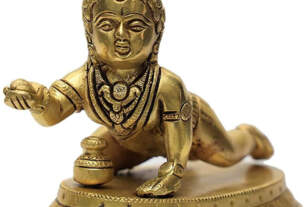By Bhalakatha
Korba, situated in Chhattisgarh, stands as the third-largest city in the state, proudly housing numerous tribes and indigenous communities. Among the organizations committed to uplifting women in this region is “Dhristee,” which empowers them through self-help groups (SHGs) by establishing micro-enterprises. Yet, they encounter various challenges in fostering an environment where women feel comfortable sharing their concerns and collaborating to run a successful enterprise.
One such micro-enterprise that ultimately proved profitable was mushroom cultivation, specifically focusing on edible and fruiting fungi. Initially, a model for systematic and scientific mushroom cultivation had been attempted but met with failure. However, the members of Dhristee delved deeper into the reasons behind this failure. With the consent of the women involved, they decided to organize a workshop to enhance their knowledge in this domain.
A comprehensive training session took place at the Jindal Institute in Tamnar, located 70 km away from the women’s residences. Some women eagerly embraced this opportunity to explore a new place, while others recognized it as a chance for personal growth.
Among the enterprising women was Urmila Yadav, a member of the SHG “Aradhana Swayam Sahayata Samuh” from Belgadi Basti in Korba. Urmila’s dedication was evident as she attended the workshop, departing from her home at 5 am and returning at 10 pm. She also encouraged another woman from her SHG to join her on this transformative journey.
Mushrooms come in various varieties, including button, paddy, oyster, shiitake, and milky, some of which can be cultivated in India. Each variety requires specific conditions for growth. The seeds, known as spawns, come in bottles and have a particular maturation period. Dhristee provided training to help the women identify the appropriate maturity level for the spawns.
The cultivation process involves layering wet straw bales mixed with disinfectants inside a polythene bag. Half-cooked wheat and seeds are sprinkled on this layer, followed by the placement of a bottle of spawns inside the bag. For optimal yield, it is advisable to have a maximum of four layers. The mushroom’s life cycle spans from 16 to 23 days, during which the bags are kept in the shade and regularly sprinkled with water.
A single bag can yield up to 2.5 kg of mushrooms, selling at prices ranging from Rs 160 to Rs 200 per kilogram. Dhristee also educated the women on concepts such as fixed costs, labor management, and creating a break-even analysis for the entire process. The model considers anything beyond the raw material cost as profit.
However, working in a tribal region presents the challenge of ensuring that women can distinguish between edible fungi and potentially poisonous varieties. Myths surrounding various mushroom species in the region add complexity to this task.
Returning to Urmila Yadav, after attending the training session, she directly contacted the trainer to kickstart her new business venture. She diligently explained the enterprise’s process to other women, persuading them to promote it within their circles. Urmila even reached out to the Dhristee team to arrange a promotional hoarding in front of her house, showcasing her group and their latest venture. When asked about her remarkable achievements, she humbly responded, “We are responsible for our own lives.”
Clearly, Urmila exemplifies taking responsibility for her own enterprise and imparting her knowledge to the women in her group. Recently, representatives from another SHG, “Ganesh Mahila Swayam Sahayata Samuh” in Bhadrapara, sought to learn mushroom cultivation practices from the women of “Aradhana Swayam Sahayata Samuh” so they could initiate a similar venture.
As someone initially underestimating the challenges of women empowerment, I’ve come to appreciate the immense effort, time, and patience it demands. Each day spent with these women, sharing laughter and life experiences, has enabled me to understand them better, just as they strive to understand me.





